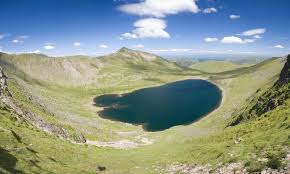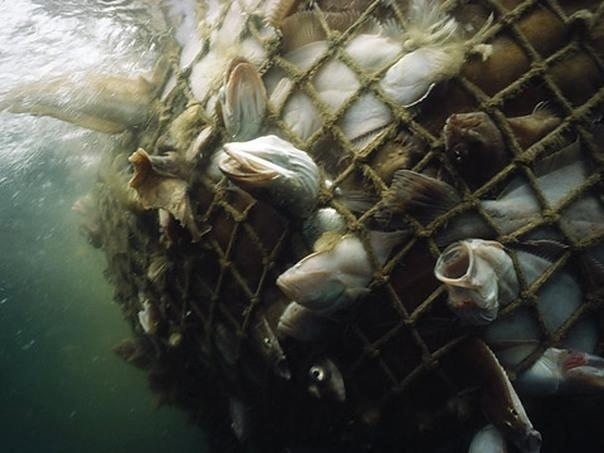I'm on the fence with hunting (hah some of you readers may see a pun there). I've gone from hating it (I loved the program Farthing Wood as a young child and had a toy fox called Foxy Loxy that I took everywhere), to supporting it (I grew up riding ponies and being a member of the Pony Club, therefore, yes I have been fox hunting on several occasions), to being disgusted with my own hypocrisy as I have developed into a firm environmentalist/conservationist. But now I'm following a middle ground, and it is a No Man's Land where I feel increasingly uneasy.
 |
| A Fox Hunt Meet |
I would just like to clarify that I am a true animal lover. They are my life. I would never seek or enjoy the death or cruelty towards any creature. I hate spiders and even then I refuse to harm them. When I heard about the
first wolf seen in the Grand Canyon for decades that got shot recently, I was honestly heartbroken. When it fits no purpose, is only for sport or endangered animals are involved I am very opposed to it. And when I have been fox hunting in the past, it was not about killing a fox for me and, I think, for most people who enjoy fox hunting it is never about that. You take the prey away and 'fox hunting' still exists. It is about the challenge of racing and leaping across the countryside, putting all your trust in the wonderful creature beneath you. It's about that bond between man and animal. It is exhilarating fun with quite a bit of terror thrown in, which is what makes it so enjoyable and so different to anything else I have ever done. Horses absolutely love going hunting. The tradition, camaraderie and culture of it is also a great thing to be a part of. When I have been hunting not many foxes or other animals were killed. They can often be 8 hour long treks with maybe only one or two kills to show for it and each hunt is in a different location. When I went hunting I would hope against hope that we would not catch anything. I cannot speak for everyone who goes fox hunting but I never knew anyone who was outright bloodthirsty. Once at a hunt meet (I expect most people won't believe this but I swear its true) two foxes ran past the group of horses and hounds. You might expect instant angry cries for the kill with hounds setting upon them instantly, but that did not happen. They were quietly allowed on their way. I'm not trying to argue you into supporting fox hunting here, I'm just highlighting my personal experiences.
Bubble-Wrap Conservation
There is a serious issue with modern conservation. It is often about keeping the environment in a fixed state, making sure everything is
protected and stifled. It is essentially bubble-wrapped. Oh, isn't everything so cute and cuddly? We must not harm it or change anything. That is not the conservation ideal I support. I support the kind of conservation that fuels the current debate on
rewilding. I support the restoration of habitats and species where it's about allowing the whole ecosystem to adapt, evolve and ultimately flourish just as nature intended. This is allowing nature to be cruel. This is also a nature where humans are not locked out. There's no reason in my mind why hunting cannot be a part of that, as long as it is limited to sustainable levels that enhance, rather than destroy, ecosystems. However, it is important that endangered species are protected. Also, in a world where we have destroyed big predators (for example, lions used to roam freely in Europe, yes even in the UK) hunting is needed. Unchecked, herbivores are single-handedly destroying our once thriving landscapes. I, of course, would much prefer to reintroduce the big predators as an alternative but that's another debate for another day. After all, humans are omnivores, we evolved to be a predator and be a part of existing ecosystems. Yet, would the world be a better place if we were herbivores? Most probably.
 |
| A barren National Park, devoid of wildlife. Is this really what we want conservation to be? |
Double Standards
There is much about debates on hunting that I struggle with. I know people who rage bitterly against fox hunting but are happy to tuck into a steak or see no problem with the fishing industry. The meat industry is highly unsustainable and abhorrent, livestock often lead lives of constant suffering and then these lives are cut short with cruelty. And do not get me started on the current fishing practices, there is little that makes me more angry. Commercial fishing destroys whole ecosystems within minutes and underwater life is subject to a wide range of cruelties. Fish being crushed to death under the weight of hundreds of others, hooks that are capable of ripping mouths, jaws and gills whilst the fish still live, seabirds drowning in nets, the list is endless (I share these nasty details only because many remain ignorant of the true realities of fishing). If we're talking about animal cruelty shouldn't how we eat be top of the list rather than focusing on the hunting of common species? At least the fox or deer or pheasant has a chance to get away and has in all likelihood lived a natural life of freedom until that point. And why is far much less fuss made about shooting or angling? Are they really any different? Perhaps, this is the cute and cuddly view coming in. Foxes are cute, fish are not. The argument is often made that we eat what we shoot or fish from these activities which makes it okay. But why does eating make it okay? Is that why unnecessary cruelty in the meat industry is seen as acceptable, simply because we are eating what we kill? I am possibly wrong, but it seems very easy and acceptable for people to pick and choose what they take a moral stand on and I have issue with that.
 |
| Fish feel pain and stress just as we do. Source: AnimalAid Photo: Occupy for Animals |
Hunting is Conservation
For right or wrong, hunting is actually a huge part of conservation. There are
reserves in Africa solely established so that elites have a playground in which they can kill as many exotic beasts as they like. Conservation is their justification. I, of course, am horrified by this reality. In Europe, some reintroductions of the European Beaver have used the argument that they could be another species of
game for hunters. This is sad, yet beaver populations can get excessive and need to be controlled. It's either reintroduce the beaver and allow hunting of it in the future, or not have them at all. In some places hunting of beavers has to be actively encouraged as nobody wants to kill them (essentially they are too easy a prey). Much conservation involves controlling/removing invasive species. There have been recent moves by government to
cull grey squirrels in the UK. They are a species that does not belong here and have pushed the native red squirrel to near extinction. I am not necessarily suggesting this is how conservation should be done, but it is part of the reality.
 |
| Some African lions are protected and bred just so they can be hunted. |
Ban the Ban
Coming back to fox hunting, there is another huge issue I have. I once saw a protester at a hunt. She held a placard depicting the words "Keep the Ban". That is the least inspiring slogan if I ever saw one. The hunt carried on behind her sparing her little thought. Does no one see a huge irony here? The supposed 'ban' has not banned fox hunting! It simply laid down some easily bent rules with huge loopholes. This has resulted in the sport becoming more cruel, in my view. The rule is that hounds are not allowed to kill anything. But people? They can kill whatever they like! This means that the hounds find the foxes, flush them out for them to meet guns waiting for them. There is at least one hunt I know of that uses an eagle instead of hounds. Perhaps, some people find this less cruel. But when hounds are involved, the strongest, youngest and fitter foxes may be able to escape. The old, sick and injured are more likely to be caught. This is survival of the fittest. Hunting also spreads fox populations around instead of them gathering in select areas. Guns, however, kill everything; weak, strong, sick, healthy. They all die. A fox with a bullet that was not a fatal shot may suffer for a long time before it dies. At least that does not happen with hounds. In my view, either completely ban it or do not. There should not be this half-hearted middle ground that has achieved absolutely nothing. So you say ban it then, hurrah! But farmers will shoot foxes that kill their chickens. My family used to keep chickens as pets. I think we had around 10 at one point. Pretty much all of them, over several years, were killed by foxes. Foxes tend to kill several animals at once and then only take one to eat. If hunting is truly banned, hundreds of hounds and horses would probably have to be put down. Perhaps, not all the horses but certainly all the dogs. They are not suitable as pets. As a horse and dog lover that is heartbreaking for me. So I can understand why this is upsetting for people.
So, What's the Answer?
Regarding fox hunting, I feel the debate is extremely polarised, almost to a nonsensical level. Rural vs. urban, rich vs. poor, horse-rider vs. non horse-rider, hunter vs. environmentalist, right vs. left, tradition vs. change, man vs. nature, pest control vs. conservation. Some of these battles appear to have little to do with the issue of animal cruelty. I also think there is quite a lack of understanding by one side of the other side's perspective and vice versa. Similarly, this is the key problem with debates on environmentalism. Two sides standing on completely different playing grounds and when that happens it is very difficult to find a compromise or a right answer. Oil magnates exist on a completely different level to Greenpeace, for example. They are aliens to each other. With fox hunting, I can perhaps bridge that gap slightly in that I have some understanding of both sides. And look where it has left me? On the fence. I'm not sure it's an issue that can ever be resolved with a Yes/No vote.
If pushed to make a decision on hunting more generally, I would say I am against hunting. If there was a magical book that told me how to be the perfect environmentalist/conservationist and Step 1 stated that 'you must oppose hunting', I would happily jump off that fence, the decision made for me. But it is not that simple. It is not an argument to support but sometimes it may be something that is necessary.
So is it possible for environmentalism to reconcile itself with hunting? For some, no, hunting is wrong. For others, yes, hunting and angling is part of conservation. For me? As an environmentalist, there are bigger fish to fry.
I would love to hear your thoughts!

